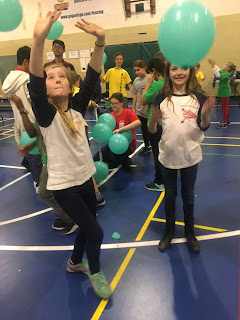First, a big Thank You to our mentor, Ella Hsu! That was a really fun and tricky team challenge she gave us: cutting a hole in a sheet of paper so that a team member could fit through it. We learned - or re-learned - a few things that can help us with any type of team challenge: include everybody, get several ideas before starting, build on each others' ideas, encourage each other, and remember it's the teamwork that counts more than the solution!
Second, we've only got 7 weeks left before the regional tournament! That's not a lot of time and we've got a ton of work to do. What this means is that we'll be relying on Slack a lot. In fact, we'd like to get as much done between meeting as we do at the meetings themselves. If you don't remember how to log on, go to:
https://cometwarriors.slack.com/
and enter your username and password. If you don't remember your login information, email Helen and she'll get it sorted out.
We picked our research topic, which will be finding or improving methods to avoid wasting water when waiting for your shower to heat up. In our house it takes almost a minute for the show to get hot enough to step into, and running the show for a minute wastes 11 liters of water. We do that three times a day, which adds up to over 4000 liters of water per year. That's 10% of all the water we use. Other than taking cold showers, how can we reduce this waste? Tara did some research during the meeting and the results are being discussed on Slack. So log in and start contributing your thoughts.
To investigate this problem further we're going to need to build a simulated plumbing system and run some experiments on it to learn about heating water, piping it, cooling it, dumping it, etc. Come this week with your ideas on how to do this.
Also, last weekend four team members including Olivia, Tara, Macy, and Lily went to the Lucknow Fall Fair in Western Ontario. It was a great opportunity to cheer each other on while learning about farm life. Here are Lily and Olivia trying their hand in the hay bale tossing competition and picking up $8 for their efforts! It didn't quite pay for the trip but gave us an idea of what it might be like to work loading hay wagons or feeding cattle. Hard work! Remember, what we learn is more important than what we win.
The word of the week, by the way, is our mentor's last name. Also, something I'd like you to do for Wednesday is measure the time it takes for your shower to heat up. How many seconds pass from the time you turn on the hot water tap until the water is warm enough for you to get into the shower?
This past weekend I went to the FLL Kickoff at Bayview Glen School in Toronto. They're a really impressive team, and won the Champion's Award in St. Louis last season. They do a huge amount of work promoting FLL in Ontario and deserve all the credit they get.
I'll be filling you in on some of what I learned at the Kickoff, and it would probably be helpful to other local teams for us to share the information with them as well.
P.S This is Olivia editing this post on Monday, the twenty-fifth of September (Aka Macy's Birthday!)
HAPPY BIRTHDAY MACY WE ALL LOVE YOU ❤❣♥♡





















